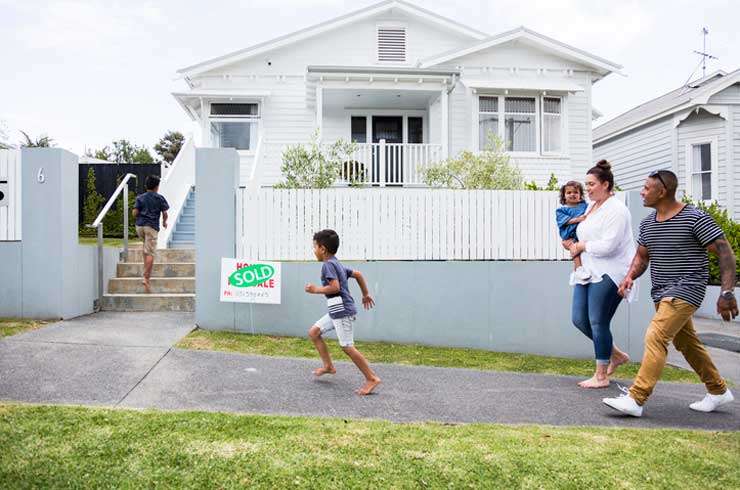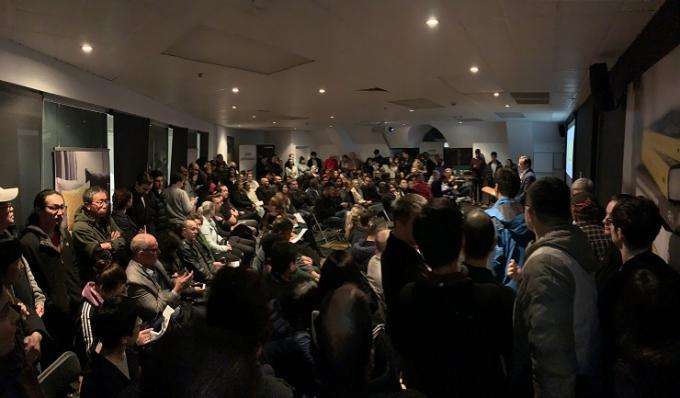OneRoof polled New Zealand’s real estate leaders on their expectations for the housing market following an unprecedented year for the industry. No one could have foreseen a complete shutdown of the housing market last year, nor could they have predicted that house prices would actually rise in the aftermath of the Covid lockdown. The real estate industry has never been so busy, and more hungry for listings. The industry also finds itself facing tough questions on what it can do to help get more Kiwis into their own property. The answers below shed light on what buyers and sellers can hope to expect in the months ahead
What are your expectations for the market this year?
MIKE BAYLEY, Bayleys managing director: The fundamentals that drove the market onwards and upwards last year are still in place: record-low interest rates, a reasonably resilient economy and a good level of business confidence. None of this looks to be changing any time soon and, as a result, the market is showing no signs of slowing down.
CAREY SMITH, Ray White chief executive: First-home buyers entering the market are doing so on the strength of the economy and given the number of buyers in the investor and first home classification has now reached 50 per cent this is giving significant momentum to the market.
Start your property search
BRYAN THOMSON, Harcourts New Zealand managing director: In early 2020 we experienced the usual flood of opinions from commentators regarding their expectations of the real estate market for the year ahead and we all know how accurate those predictions turned out to be. Given the same voices are now predicting 2021 activity I guess we will allow hindsight to once again be the most accurate judge.
BARRY THOM and GRANT LYNCH, UP Real Estate directors: As the number of available homes decreases, competition among buyers will likely increase and we expect prices will continue to firm accordingly.
Rising prices have resurfaced questions about housing affordability in New Zealand. Is this a worry, and if so do you think there is a solution?
PETER THOMPSON, Barfoot and Thompson managing director: There is no short-term solution but in the medium-term the key is building more and within the mix including more affordable homes. To achieve this requires changes to the RMA and even more flexible financing options for first-time buyers. Ultimately, left to run its course the market will find its ceiling. However, concerns about future restrictions has the potential in the short-term to see people make a more impulsive decision than they might otherwise make.

The clamour is growing for more affordable homes in the market. Photo / Getty Images
BARRY GRIEVE, national network manager LJ Hooker & Harveys New Zealand: This is a question that has been asked over and over throughout each property surge over the last 30 years and more. Like any product value its driven by “supply and demand” and prices can only be driven up while affordable to the buyer. As interest rates change, so will the market and its direction.
MARK COLLINS, Mike Pero chief executive: More affordable housing being built will go a long way to helping solve this pressure for first-home buyers. However, prices are out of whack against the average Kiwi income. From a lending perspective, we are seeing a lot of friends’ club together for a deposit or parents helping using equity from their home.
CAREY SMITH: Interest rates will be a natural hedge against potential long-term continuation of rising prices. If interest rates remain low and continue at these levels, then prices will go up because of confidence.
MIKE BAYLEY: We need to see more government policy that will encourage residential construction at scale and speed to help more Kiwis get into their first homes. Councils need to take a less bureaucratic and faster approach to processing consents. I think the government should take a close look at providing deposit funding for first home buyers and those eligible for affordable homes. Many first-home buyers don’t have the necessary deposit funds or income security to satisfy retail bank requirements. Essentially, the government lends eligible purchasers a portion of the required deposit and takes security over the home alongside the mortgagee. Those old enough may remember the support government-owned State Advances Corporation provided to help get a much greater proportion of the population on to the property ladder.

Auctions rooms have felt the heat in the last 12 months. Photo / Supplied
BRYAN THOMSON: In simple terms, New Zealand does not have the housing stock to meet demand, so prices have risen. This supply/demand balance remains in play for 2021 and is the key — and possibly the only real solution — to addressing the challenge of affordability across some sectors of the housing market.
BARRY THOM and GRANT LYNCH: Supply and demand factors have caused some dramatic increases in prices, with some suburbs impacted more than others. We are aware of some current buyers having already sold and now finding it difficult to repurchase in the same suburb.
Is Covid still a threat to the housing market or is house-buying in New Zealand now immune to the virus?
CAREY SMITH: While New Zealand has withstood the impact of Covid through the various government actions and initiatives there will always be a degree of uncertainty when it comes to events of uncertainty and events that we cannot ordinarily control. Covid is one of those events that is continuing, however, there are many other potential risks to the housing market that can be wide and varied.
MARK COLLINS: The impact of Covid will continue to be felt, especially in our tourist regions, however, we have a much better understanding of the impact now and the industry as a whole can navigate with more certainty. I don’t think New Zealand is immune at all — I think we are more prepared.
PETER THOMPSON: The effect Covid had on the property market was to add restraints to viewings and auctions. Through technology we found work- arounds. Covid itself will not prevent people selling, buying or investing in houses.
BRYAN THOMSON: We cannot discount New Zealand’s current success in the battle against Covid. This has not only attracted Kiwis living offshore to consider coming home, increasing the demand for property, but has also increased the confidence of those of us living here, and we know confidence is a key driver for all forms of investment decision-making.
BARRY GRIEVE: Nothing is immune to these things as we look around the world and still see such hardship and pain. We all need to be mindful this is not over yet and can easily change taking us right back to the beginning.
Complete the following sentence: If I were a seller right now, I’d ...
MIKE BAYLEY: Be choosing a no-price sale method with a deadline, such as auction, to take advantage of the strong competition that exists in the market to get the best possible price for my property.
PETER THOMPSON: I’d waste no time listing my property. There is strong buyer demand, prices are at all-time highs and the Government has unspecified plans to rein in the market.
BRYAN THOMSON: I would select a superb agency and consultant and be hitting the market right now. Demand is strong and prices are positive so why would you wait? You certainly wouldn’t act based on the speculations of market commentators — we’ve seen how accurate they have been in the past now haven’t we?
BARRY GRIEVE: I’d be realistic and do not get too ambitious. Properties are selling but this bubble could change/adjust quickly. Covid-19 is still a threat and as housing prices rise with the demand, buyer affordability will decrease and the buyer pool will get smaller in the market slowing down this overwhelming demand we have right now and creating a much more normal buying and selling market.
CAREY SMITH: I would ensure my property is marketed to a wide audience of potential purchasers.
MARK COLLINS: I’d make sure I had my next move lined up.

